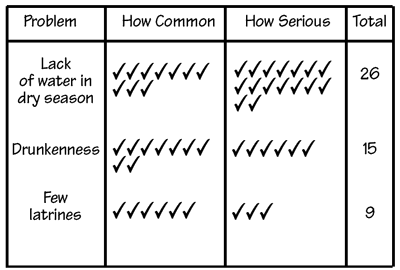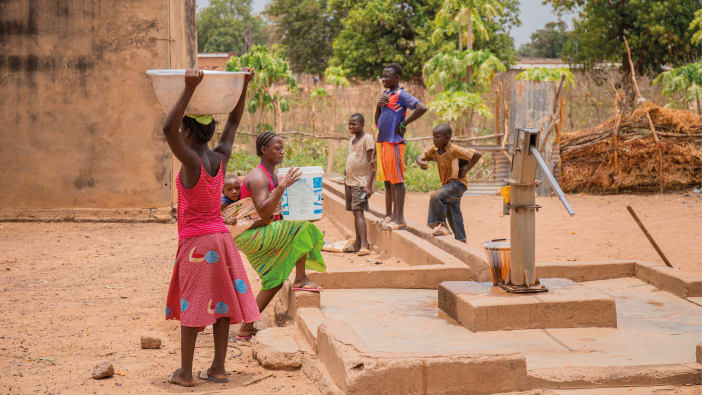For health or development workers, each day is likely to bring many problems and concerns that need immediate attention. However it is easy to let these immediate problems take over any long term planning. We all need to set priorities in our lives and in our work and try to make sure that these really do ‘take priority’ and take up most of our time. Otherwise we will look back over the past year and realise that we have not helped achieve any practical and long term benefits.
Common interruptions that take our time and attention may include:
- reading the paper
- visitors needing hospitality
- friends and relatives needing help with transport
- officials requesting assistance for their work
- lack of fuel to make planned visits
- losing important documents or letters.
Rather than always dealing with the immediate, we all need to ensure we have a long-term vision as well and give this our full attention. Below are some ideas for a meeting that may help participants learn how to effectively set priorities.
Once people have tried these exercises and become familiar with the idea of prioritising, these skills can be used in any situation. Recording information is important for planning. People can list the problems or concerns of the people they work with, or of their organisation, clinic or school, either on their own or in pairs and combine these on a chart, such as the one below. People could then indicate which are the priority concerns. In this example, 25 people were asked to prioritise between three local problems in terms of how common and how serious they were.










